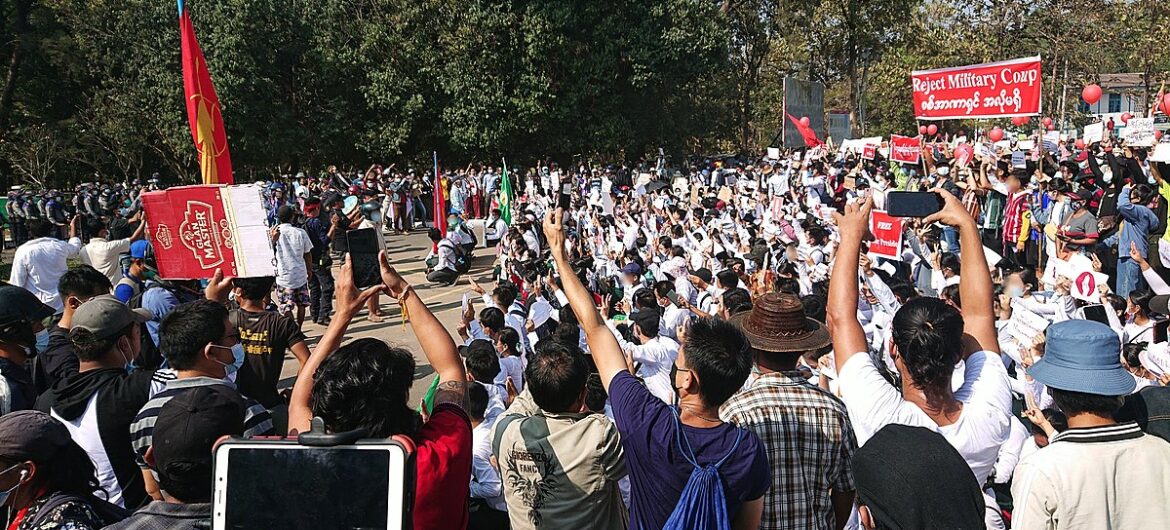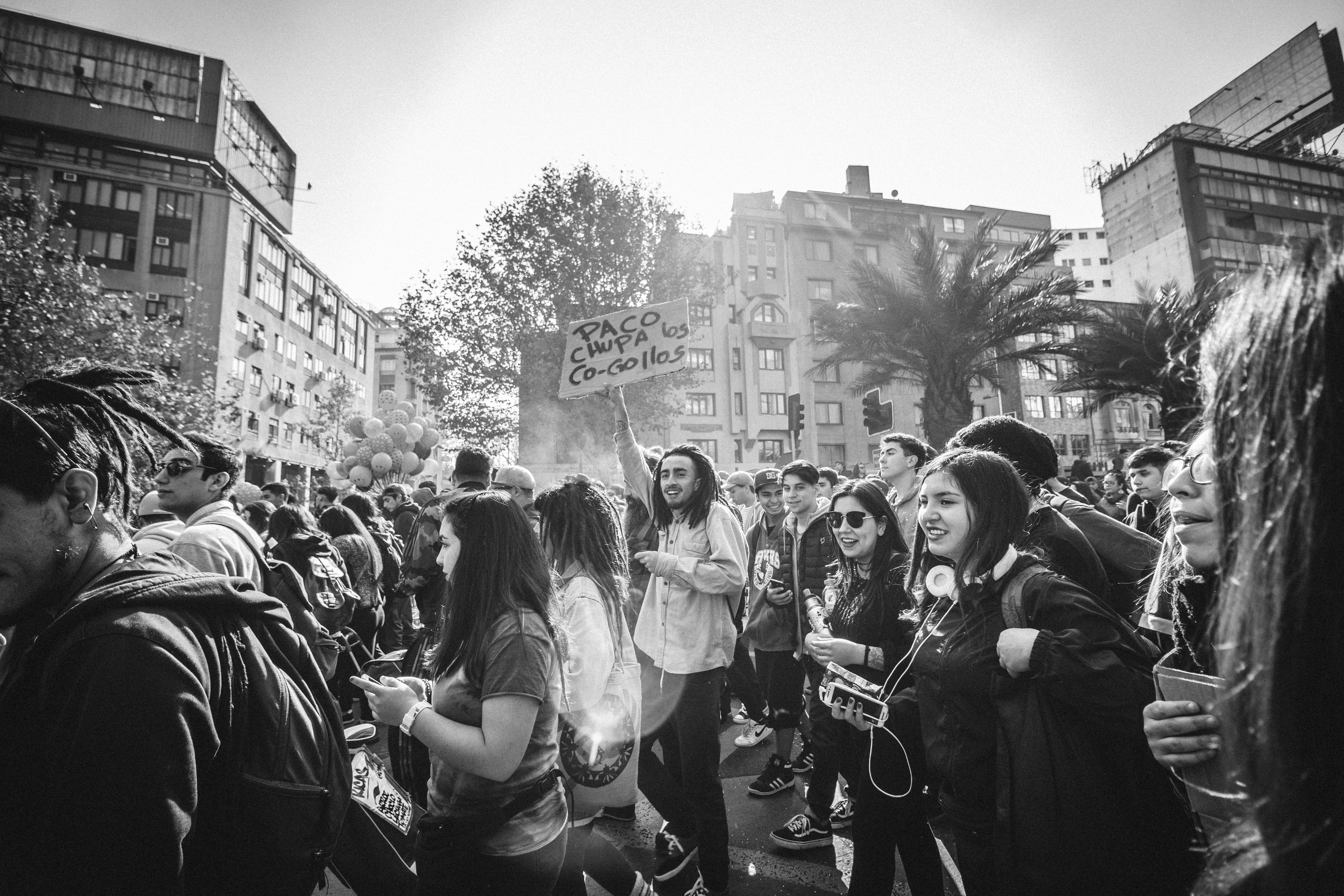Words by Oliver Mizzi
Protests have arisen across Myanmar after the military orchestrated a coup that ousted the civilian leadership of the country.
The coup that occurred on 1 February has had an overwhelmingly negative reaction throughout Myanmar, with protestors coming out against the military in major cities such as the capital Naypyidaw, Mandalay, and Yangon.
Protestors have used a variety of protest tactics to signal their anger at the coup. These include banging on pots and pans from balconies, as well as clashing with the police in mass rallies, defying the restrictions that have been placed on rallies due to Covid.
The result of these rallies has been the deployment of security services. The police have come out in force in many cities, firing tear gas and water cannons against protestors. On Tuesday a protestor was shot in the head when police fired a live round into a crowd of people in the capital Naypyitaw. She is currently on life support.
The National League of Democracy (NLD), the ruling party whose members include the now detained State Counsellor Aung San Suu Kyi, and President Win Myint, initially called for resistance against the coup, but the call has been taken up by a variety of entities within Myanmar.
A wide array of non-Burmese groups has joined the calls against the coup. Many of these minority groups have a long history of fighting the military dominated state which has traditionally been ethnically Burmese and exclusionary to minority groups. These include the Shan, Karen, and Kachin ethnic groups.
Moreover, armed groups which are made up of minorities have also entered the scene. The Ta’ang National Liberation Army has expressed support for the anti-coup protests, whilst the Arakan Army and Kachin Independence Army have noted that they are monitoring the situation, especially the army’s actions towards counter coup demonstrators.
On Thursday, several protestors who had been arrested by security forces in the city of Loikaw, the capital of Kayah state, were freed after the Kayan New Land Party – an armed group in the province – intervened. This occurred after hours of negotiations between the two groups.
As well as minority groups, a wide range of professions have participated in a general strike across the country. This includes nurses, teachers, civil servants, firefighters and Buddhist monks and nuns.
As well as piling on pressure against the military, protesters have called for solidarity from the police. Although the police as an institution has joined the military in cracking down on protestors, there are cracks. 52 police officers defected to the protestors in Loikaw on Wednesday, and there have been other reports of lone police officers joining the protesters across the country.
Since protests began, 220 people, many of which are members of the ruling National League of Democracy (NLD), have been arrested, and a further 200 are in detention.
The arrests and detentions of protestors and activists have drawn condemnation from international actors, such as Pope Francis, who on the 7 February stated: “I want to again assure my spiritual closeness, my prayers and my solidarity with the people of Myanmar”. Whilst the EU has considered re-imposing sanctions on the country, President Biden has already given the order stating: “The military must relinquish power it seized and demonstrate respect for the will of the people of Burma”.
On the day of the coup, the military, led by General Min Aung Hlaing, detained both State Counsellor Aung San Suu Kyi and President Win Myint. Both figures have been charged by the military, with Kyi being charged with illegally importing walkie-talkies, and Myint being charged for breaching Covid restrictions for a rally he attended on 20 September last year.
Both are popular politicians in the country and are part of the NLD. The party won the 2020 general elections with 80% of the total votes. Likewise, they both have a long history of pro-democracy activism, actively participating in the 8888 uprising against the military back in 1988.
This isn’t the first instance of the military meddling in politics in the country. Since a military coup in 1962, the military has been waging a tug of war against pro-democracy groups over control of the central government. This has often been bloody, with the military resorting to crackdowns against mass protests movements, most notable the 8888 uprising that led to the deaths of thousands of protestors after 3 months of protests.
The most recent instance of bloodshed was during the 2007 Saffron Revolution, when the military put down protests calling for the establishment of democracy that led to the deaths of up to 31 people.
On Friday the military announced a general amnesty, releasing 23,000 prisoners in a move that has created fears over a fresh round of arrests will take place against protestors due to the freed-up capacity in state prisons. Given the historical record of the military in Myanmar, this move has provoked fears that the protests could once again culminate in a violent crackdown.
During the early hours of Monday, reports came out that the military was being deployed to the streets across Myanmar, firing live rounds at protestors in the northern city of Myitkyina.
Picture Credit: Ninjastrikers





